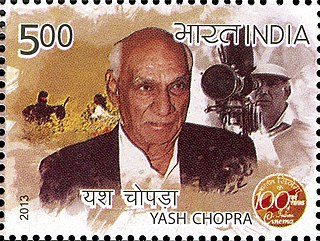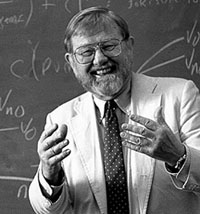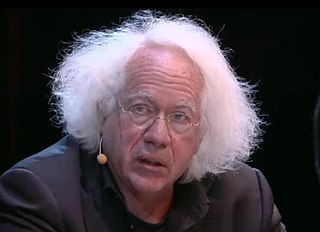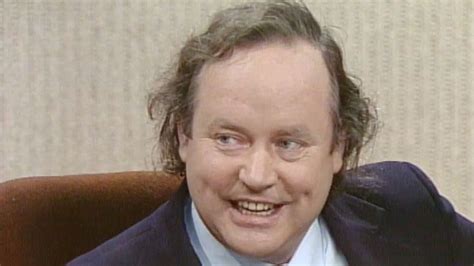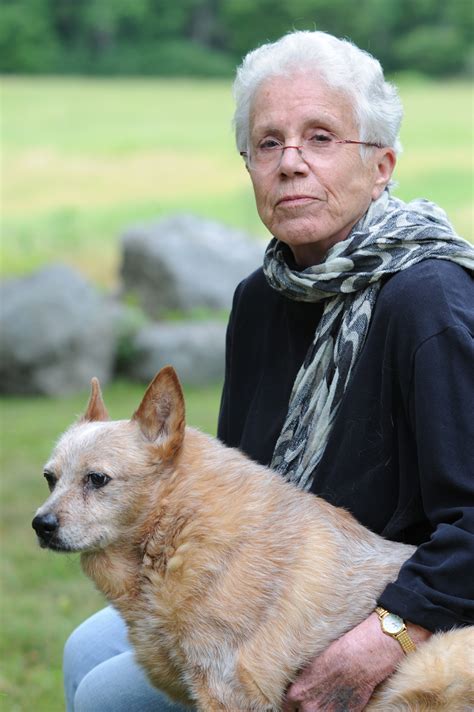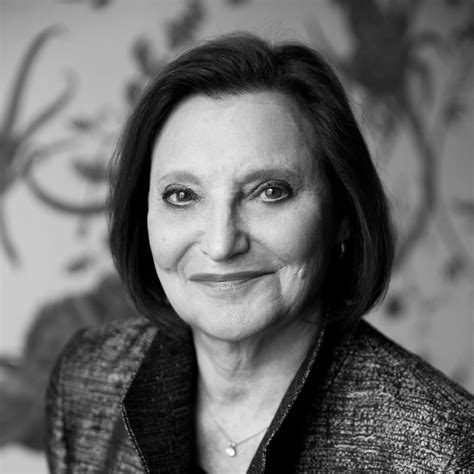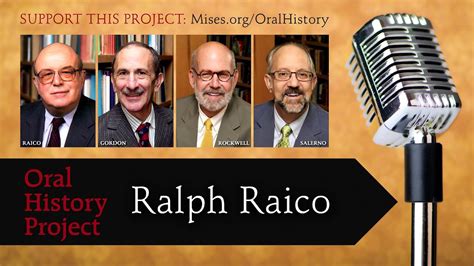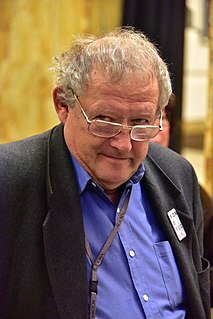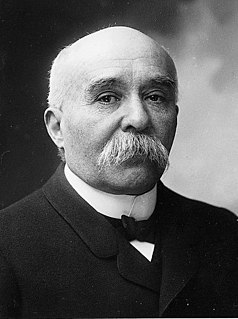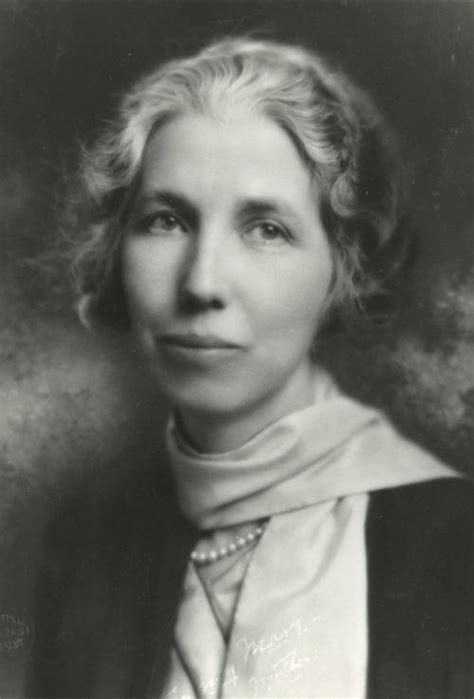Top 418 Humane Quotes & Sayings - Page 7
Explore popular Humane quotes.
Last updated on April 20, 2025.
As women's leadership qualities come to play a more dominant role in the public sphere, their particular aptitudes for long-term negotiating, analytic listening, and creating an ambiance in which people work with zest and spirit will help reconcile the split between the ideals of being efficient and being humane. This integration of female values is already producing a more collaborative kind of leadership, and changing the very ideal of what strong leadership actually is.
There is in man's nature a secret inclination and motion towards love of others, which, if it be not spent upon some one or a few, doth naturally spread itself towards many, and maketh men become humane and charitable, as it is seen sometimes in friars. Nuptial love maketh mankind, friendly love perfecteth it, but wanton love corrupteth and embaseth it.
Knowledge is humanistic in quality not because it is about human products in the past, but because of what it does in liberating human intelligence and human sympathy. Any subject matter which accomplishes this result is humane, and any subject matter which does not accomplish it is not even educational.
What we need most is to restore and revive our humanity. We must create a society where people can live with dignity, a society where people can live in peace and happiness. People are tired of games played for power and profit. People are tired of hatred and conflict. They want to live with more wisdom and confidence, and in peace. It may seem like a long and distant path, but I am convinced that the 21st century must see a movement to sow the seeds of peace, happiness and trust in every person's heart. The seeds of a truly humane way of life. I am convinced this is the only path.
You find as you look around the world that every single bit of progress in humane feeling, every improvement in the criminal law, every step toward the diminution of war, every step toward better treatment of the colored races, or every mitigation of slavery, every moral progress that there has been in the world, has been consistently opposed by the organized churches of the world. I say quite deliberately that the christian religion, as organized in its churches, has been and still is the principle enemy of moral progress in the world.
The elemental fact, present in our consciousness every moment of our existence, is: I am life that wills to live, in the midst of life that wills to live.... The essence of the humane spirit is: Preserve life, promote life, help life to achieve its highest destiny. The essence of Evil is: Destroy life, harm life, hamper the development of life
We must apply our humble efforts to the construction of a more just and humane world. And I want to declare emphatically: Such a world is possible. To create this new society, we must present outstretched and friendly hands, without hatred and rancor, even as we show great determination and never waver in the defense of truth and justice. Because we know that we cannot sow seeds with clenched fists. To sow we must open our hands.
Only in the 20th century, artists started taking the study of perception in a more humane way. They were thinking about the eye as being an instrument, the whole body as being a visual instrument. That sort of gave way a little bit with Cartesian - the "Cogito ergo sum" argument. It's not, "I think therefore I exist." It's, "I feel therefore I think therefore I exist."
Though "Veer-Zaara" is a film about cross-border love, there isn't a word of politics in it. Forget politics, there isn't slap, not even a raised voice in "Veer-Zaara"(2004). It's a very intense, humane and emotional story. "Veer-Zaara" (2004) is a humble tribute to my home in Punjab. It's my tribute to the one-ness of people on both sides of the border. Every religion preaches peace. Then why the bloodshed for the sake of religion? Why are we destroying each other?.
Alfred Nobel - pitiable half-creature, should have been stifled by humane doctor when he made his entry yelling into life. Greatest merits: Keeps his nails clean and is never a burden to anyone. Greatest fault: Lacks family, cheerful spirits, and strong stomach. Greatest and only petition: Not to be buried alive. Greatest sin: Does not worship Mammon. Important events in his life: None.
There is an elementary aspiration which undergirds the humane impulse in our history and our culture and binds us together as political activists. This is a simple, irreducible, indisputable aspiration. It is the 'dream of justice' for a beloved community, in which the level of terror in people's lives is sharply reduced or maybe eliminated. It is the belief that extremes and excesses of inequality must be reduced so that each person is free to fully develop his or her full potential. This is why we take precious time out of our lives and give it to politics.
Thus the criminal ceases to be a person, a subject of rights and duties, and becomes merely an object on which society can work. And this is, in principle, how Hitler treated the Jews. They were objects; killed not for ill desert but because, on his theories, they were a disease in society. If society can mend, remake, and unmake men at its pleasure, its pleasure may, of course, be humane or homicidal. The difference is important. But, either way, rulers have become owners.
You may ask what kind of a republic I dream of. Let me reply: I dream of a republic independent, free, and democratic, of a republic economically prosperous and yet socially just; in short, of a humane republic which serves the individual and which therefore holds the hope that the individual will serve it in turn. Of a republic of well-rounded people, because without such it is impossible to solve any of our problems, human, economic, ecological, social, or political.
If the finding of Coines, Medals, Urnes, and other Monuments of famous Persons, or Towns, or Utensils, be admitted for unquestionable Proofs, that such Persons or things have, in former Times, had a being, certainly those Petrifactions may be allowed to be of equal Validity and Evidence, that there have been formerly such Vegetables or Animals. These are truly Authentick Antiquity not to be counterfeited, the Stamps, and Impressions, and Characters of Nature that are beyond the Reach and Power of Humane Wit and Invention, and are true universal Characters legible to all rational Men.
Rebecca Mead's My Life in Middlemarch is a wise, humane, and delightful study of what some regard as the best novel in English. Mead has discovered an original and highly personal way to make herself an inhabitant both of the book and of George Eliot's imaginary city. Though I have read and taught the book these many years I find myself desiring to go back to it after reading Rebecca Mead's work.
The money our society spends goes to appease those with power. As such, it goes mainly to those who don't need it. A nation that redistributes income to its poor buys a civilized and humane society, and it buys this with a miniscule share of the national income and a modest reduction in the supply of cleaning women. A country that subsidizes workers in the prime working years sacrifices, not a dust-free living room, but the very muscle of the national economy.
Philip Kitcher has composed the most formidable defense of the secular view of life since Dewey. Unlike almost all of contemporary atheism, Life After Faith is utterly devoid of cartoons and caricatures of religion. It is, instead, a sober and soulful book, an exemplary practice of philosophical reflection. Scrupulous in its argument, elegant in its style, humane in its spirit, it is animated by a stirring aspiration to wisdom. Even as I quarrel with it I admire it.
The religions whose theology is least preoccupied with events in time and most concerned with eternity, have been consistently less violent and more humane in political practice. Unlike early Judaism, Christianity and Mohammedanism (all obsessed with time) Hinduism and Buddhism have never been persecuting faiths, have preached almost no holy wars and have refrained from that proselytizing religious imperialism which has gone hand in hand with political and economic oppression of colored people.
Poetry is, above all, a singing art of natural and magical connection because, though it is born out of one's person's solitude, it has the ability to reach out and touch in a humane and warmly illuminating way the solitude, even the loneliness, of others. That is why, to me, poetry is one of the most vital treasures that humanity possesses; it is a bridge between separated souls.
The bitter hatreds that now poison Middle Eastern politics are rooted in the real or perceived wrong of the setting up of a Jewish State in an Islamic region. In view of all that the Jews had been through, it must have seemed a fair and humane solution. Probably deep familiarity with the Old Testament had given the European and American decision-makers some sort of idea that this really was the historic homeland of the Jews.
It is no coincidence that a rebirth of psychedelic use is occuring as we acquire the technological capability to leave the planet. The mushroom visions and the transformation of the human image precipitated by space exploration are spun together. Nothing less is happening than the emergence of a new human order. A telepathic, humane, universalist kind of human culture is emerging that will make everything that preceded it appear like the stone age.
But could not our situation be compared to one of a menacing epidemic? People are unable to view this situation in its true light, for their eyes are blinded by passion. General fear and anxiety create hatred and aggressiveness. The adaptation to warlike aims and activities has corrupted the mentality of man; as a result, intelligent, objective and humane thinking has hardly any effect and is even suspected and persecuted as unpatriotic.
The fascinating thing to a dispassionate observer about the structure of life in the Soviet Union is that in their efforts to produce an unknown that we may let its ideologists call Socialism the Communist dictators have produced a brutal approximation of monopoly Capitalism, a system that has all the disadvantages of our own, with none of the palliatives which come to us from surviving competition and from the essential division of economic and political power which has so far made it possible for the humane traditions of the Western world to continue.
I feel we all have the obligation, myself. I want to live in a more humane, civilized society, and I feel like the only way we're going to achieve that is if we all take it upon ourselves. I just wish we could be a more caring society. I feel like we're social Darwinists who believe that everyone has to make it on their own. But the reality is that we all don't start out on the same footing.
For the Members of the Assembly having before their eyes so many fatal Instances of the errors and falshoods, in which the greatest part of mankind has so long wandred, because they rely'd upon the strength of humane Reason alone, have begun anew to correct all Hypotheses by sense, as Seamen do their dead Reckonings by Cœlestial Observations; and to this purpose it has been their principal indeavour to enlarge and strengthen the Senses by Medicine, and by such outward Instruments as are proper for their particular works.
I believe that the place where an animal dies is a sacred one. There is a need to bring ritual into the conventional slaughter plants and use as a means to shape people's behavior. It would help prevent people from becoming numbed, callous, or cruel. The ritual could be something very simple, such as a moment of silence. In addition to developing better designs and making equipment to insure the humane treatments of all animals, that would be my contribution.
I'm very much about the environment, I'm very much about health, about being able to, at the very least, eat organic, whole foods that are healthy for us. And then, of course, everyone being able to eat and at least have a humane way to live. There's enough for everybody, but unfortunately, there's a lot of greed and a lot of ego.
Top Trumps appeared to be a game in which you got cards, and the cards had a picture (in this case, of a horse), and told you all kinds of stats for that horse, how fast it was, how big it was, etc. Whoever had the better horse won both the cards. You repeated this until someone had all the cards. So, basically it was exactly like high school, except it only took three minutes. Which was really a bit more humane, if you thought about it.
This life in us; however low it flickers or fiercely burns, is still a divine flame which no man dare presume to put out, be his motives never so humane and enlightened; To suppose otherwise is to countenance a death-wish; Either life is always and in all circumstances sacred, or intrinsically of no account; it is inconceivable that it should be in some cases the one, and in some the other.
It is unacceptable that the way we have treated people who have become addicted in the past is by throwing them in prison. It's appropriate that we're responding now by trying to get people the treatment they so desperately need. The racial divide here is absolutely unacceptable, and we have to do much better for all people who are addicted whether they are white, black, brown, any race - the humane way to respond to addiction is in a public health fashion and by getting people the help they need.
Of all the things we are wrong about, error might well top the list ... We are wrong about what it means to be wrong. Far from being a sign of intellectual inferiority, the capacity to err is crucial to human cognition. Far from being a moral flaw, it is inextricable from some of our most humane and honourable qualities: empathy, optimism, imagination, conviction, and courage. And far from being a mark of indifference or intolerance, wrongness is a vital part of how we learn and change. Thanks to error, we can revise our understanding of ourselves and amend our ideas about the world.
Therefore it is unnecessary for a prince to have all the good qualities I have enumerated, but it is very necessary to appear to have them. And I shall dare to say this also, that to have them and always to observe them is injurious, and that to appear to have them is useful; to appear merciful, faithful, humane, religious, upright, and to be so, but with a mind so framed that should you require not to be so, you may be able and know how to change to the opposite.
The best generals I have known were... stupid or absent-minded men. Not only does a good army commander not need any special qualities, on the contrary he needs the absence of the highest and best human attributes - love, poetry, tenderness, and philosophic inquiring doubt. He should be limited, firmly convinced that what he is doing is very important (otherwise he will not have sufficient patience), and only then will he be a brave leader. God forbid that he should be humane, should love, or pity, or think of what is just and unjust.
They hate kings, they hate priests, they hate soldiers, they hate sailors. They distrust men of science, they denounce the middle classes, they despair of working men, but they adore humanity. Only they always speak of humanity as if it were a curious foreign nation. They are dividing themselves more and more from men to exalt the strange race of mankind. They are ceasing to be human in the effort to be humane.
Love in truth-caritas in veritate-is a great challenge for the Church in a world that is becoming progressively and pervasively globalized. The risk for our time is that the de facto interdependence of people and nations is not matched by ethical interaction of consciences and minds that would give rise to truly human development. Only in charity, illumined by the light of reason and faith, is it possible to pursue development goals that possess a more humane and humanizing value.
Germany was a parliamentary democracy with many, many humane and decent people who kept writing in their journals - I've read these journals, these memoirs - "Surely our leaders will stop this nonsense. Surely someone will take on these thugs. Surely the pendulum will swing back." Everyone was sitting at home going, "Well, they haven't come for me. This is crazy, but surely someone's going to take care of it." We all have to take care of it.
Every day, the humane societies execute thousands of dogs who tried all their lives to do their very best by their owners. These dogs are killed not because they are bad but because they are inconvenient. So as we need God more than he needs us, dogs need us more than we need them, and they know it.
To know only one thing well is to have a barbaric mind: civilization implies the graceful relation of all varieties of experience to a central humane system of thought. The present age is peculiarly barbaric: introduce, say, a Hebrew scholar to an ichthyologist or an authority on Danish place names and the pair of them would have no single topic in common but the weather or the war (if there happened to be a war in progress, which is usual in this barbaric age).
They offer, if we are wise enough or simple enough to take it, a model for what it means to give your heart with little thought of return. Both powerfully imaginary and comfortingly real, dogs act as mirrors for our own beliefs about what would constitute a truly humane society. Perhaps it is not too late for them to teach us some new tricks.
What is the free market? Well, the free market, [we're told] is really a terrible, inhuman kind of arrangement, because it treats people like commodities. But how does the government treat people? Like garbage-worse than garbage. Not like commodities, but like nothing. We libertarians understand that we are not humane, we are not compassionate. It's the leftists and the liberals, they're the ones who are human and compassionate, but you'd better not get in their way.
I think from an economics point of view, it is important that the money that is spent for health care is well spent - what is the cost-effectiveness of the money that is used? - because if the money is well spent, many people benefit from the system, and it is also a good market for finding employment. I do not see a reason why we should limit ourselves when it comes to very qualified and humane employment opportunities if there is no waste and if there is medical need.
There are crimes which no one would commit as an individual which he willingly and bravely commits when acting in the name of his society, because he has been (too easily) convinced that evil is entirely different when it is done 'for the common good.'...one might point to the way in which racial hatreds and even persecution are admitted by people who consider themselves, and perhaps in some sense are, kind, tolerant, civilized and even humane.
Start doing the things you think should be done, and start being what you think society should become. Do you believe in free speech? Then speak freely. Do you love the truth? Then tell it. Do you believe in an open society? Then act in the open. Do you believe in a decent and humane society? Then behave decently and humanely.
Our generation may stand at a crucial breakpoint in history, for we in the presently affluent nations may be the last who can afford to open up the high frontier. What we do during the next ten or twenty years may determine whether future generations will live in a humane and rewarding society, or whether they will spend their lives in desperate contention for the dwindling sustenance afforded by our limited terrestrial resources.
These are human beings with real lives and the uncertainty and the fear that any of them face right now could be ended at a stroke if we had all the candidates for prime minister simply say that the right to remain here is not in question and I call again upon Theresa May and on the current prime minster to do that. That would be the humane thing to do and I even at this stage hope that that's a direction they will take.
Fascism is the most inherently evil political ideology that man has ever devised. Wherever we see even the smallest sapling of fascism growing, we should use every just, reasonable and humane method at our disposal to rip-it out by its roots and then salt the very earth wherein it grew, so that no other such thing may ever again take root. Of course, we must also take great care to ensure that during this process, we ourselves do not become fascists in the fight against fascism.
On September 17, 1914, Erzberger, the well-known German statesman, an eminent member of the Catholic Party, wrote to the Minister of War, General von Falkenhayn, "We must not worry about committing an offence against the rights of nations nor about violating the laws of humanity. Such feelings today are of secondary importance"? A month later, on October 21, 1914, he wrote in Der Tag, "If a way was found of entirely wiping out the whole of London it would be more humane to employ it than to allow the blood of A SINGLE GERMAN SOLDIER to be shed on the battlefield!"
You are never going to have, in a country as rich as ours [the USA], that borders a country as poor as Mexico, an end to immigration. You just won't. The question is, if you make it humane and if you make it regulated. It's much better for an American worker to compete against a regulated immigrant inside labor standards, than it is to ever to compete against an illegal immigrant.
Nature must be viewed humanly to be viewed at all; that is, her scenes must be associated with humane affections, such as are associated with one's native place. She is most significant to a lover. A lover of Nature is preeminently a lover of man. If I have no friend, what is Nature to me? She ceases to be morally significant. . .
I think of the old slavery, and of the way The Economy has now improved upon it. The new slavery has improved upon the old by giving the new slaves the illusion that they are free. The Economy does not take people's freedom by force, which would be against its principles, for it is very humane. It buys their freedom, pays for it, and then persuades its money back again with shoddy goods and the promise of freedom. "Buy a car," it says, "and be free. Buy a boat and be free." Is this not the raw material of bad dreams? Or is it maybe the very nightmare itself?
If anyone feels offended by my words, I would respond that I speak them with affection and with the best of intentions, quite apart from any personal interest or political ideology. My words are not those of a foe or an opponent. I am interested only in helping those who are in thrall to an individualistic, indifferent and self-centred mentality to be freed from those unworthy chains and to attain a way of living and thinking which is more humane, noble and fruitful, and which will bring dignity to their presence on this earth.
Until the chance for political participation is there, we who are poor will continue to attack the soft part of the American system - its economic structure. We will build power through boycotts, strikes, new union - whatever techniques we can develop. These attacks on the status quo will come, not because we hate, but because we know America can construct a humane society for all its citizens - and that if it does not, there will chaos.
Science can give us only the tools in the box, these mechanical miracles that it has already given us. But of what use to us are miraculous tools until we have mastered the humane, cultural use of them? We do not want to live in a world where the machine has mastered the man; we want to live in a world where man has mastered the machine.
There are two Americas. One is the America of Lincoln and Adlai Stevenson; the other is the America of Teddy Roosevelt and the modern superpatriots. One is generous and humane, the other narrowly egotistical; one is self-critical, the other self-righteous; one is sensible, the other romantic; one is good-humored, the other solemn; one is inquiring, the other pontificating; one is moderate, the other filled with passionate intensity; one is judicious and the other arrogant in the use of great power.
Junior was eleven. The statement is significant. There are a few peevish people in the world who believe that all eleven-year-old boys ought to be hung. Others, less irritable, think that gently chloroforming them would seem more humane. A great many good-natured folks contend that incarceration for a couple of years would prove the best way to dispose of them.
A learned man is a sedentary, concentrated solitary enthusiast, who searches through books to discover some particular grain of truth upon which he has set his heart. If the passion for reading conquers him, his gains dwindle and vanish between his fingers. A reader, on the other hand, must check the desire for learning at the outset; if knowledge sticks to him well and good, but to go in pursuit of it, to read on a system, to become a specialist or an authority, is very apt to kill what suits us to consider the more humane passion for pure and disinterested reading.








